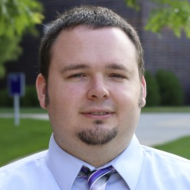If you’ve been following this blog, you’ll know that Science Booster Club volunteers rarely encounter open conflict even when we bring evolution and climate change activities to religiously and politically conservative areas.
But the truth is, doing this work is hardly problem-free. As we’ve expanded into increasingly socially, religiously, and politically conservative territory, we do come up against a variety of pressures. Of course, as a social being, I care deeply about feeling accepted just like anyone else. So do the people who come to our events. People don’t want to avoid only outright violence and conflict. Some of our most painful encounters instead involve shame and rejection. When it comes to having conversations about uncomfortable topics, as an SBC leader, I have to be sure to be aware that the people I meet might expect rejection or condescension from someone identifying as a scientist. And I have to guard against reacting to what I perceive as hostility with defensiveness.
As an example, I’d like to tell you about a phenomenon that has happened often enough that I have come to expect it, and have found ways to deal with it successfully. I call this phenomenon “Watching from a Distance.”
When people are unsure of something, it just makes sense to get more information on the situation by watching from a safe distance. I do that too. But imagine you’re the one being watched! Believe me, it’s uncomfortable. The implicit message is that the watchers aren’t sure they trust or want to welcome you.
But in many conservative communities, climate change and evolution can be “hot-button” issues, and lots of people have been given the message–implicitly or explicitly–that “elites” or “scientific experts” think that people like them are ignorant. So even though we know that we’re presenting the science in a non-confrontational and inclusive manner, the people we meet for the first time don’t know that. And so they watch.
Even understanding this, it is still really off-putting to be observed from a distance when all you want is to have a friendly science-focused interaction. So here’s how I respond.
When I notice people watching a Booster Club activity from a distance, my solution is to ignore parents and other adults (who are typically more reserved) and call out to ask kids if they want to “do some science.” This is something I often ask my own young son, who loves his science time, and I know it is something most other children also love. As soon as their child is engaged in an activity, most parents are willing to come closer and engage with the topic themselves. When adults watch us work with their children, they realize we’re encouraging kids to experience science for themselves at a fundamental level with clear, accessible concepts. Watching how we work with children demystifies what we’re doing and helps parents gain a sense of trust, not only in us, but in science in general. Hands-on, friendly activities help people see that our “agenda” truly is understanding the underlying science, not pushing a particular position. When a level of trust is established, one outcome can be prolonged conversation with adults on topics about which they often have many questions that they might have been afraid to ask. A positive interaction with a scientist. A little more information about climate change or evolution. A big step forward in building trust.

